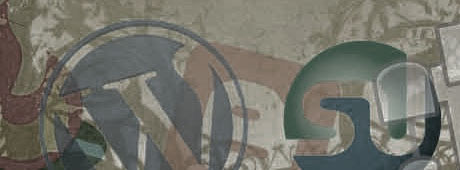This syllabus is also available in PDF format.
Introduction
This 2-semester course provides an opportunity for in-depth research and analysis of a topic that stirs your curiosity and motivates your desire to share what you learn about it with others. The weekly assignments are geared toward fostering intellectual community as well as cultivating skills in writing, oral presentation, and techniques of inquiry.
Over the course of both semesters, you will meet in consultation with a faculty advisor in your research field on a regular basis. Much of your work will be done individually as you gather sources and data about your topic. As a class, we will meet to brainstorm about topics, focus and refine ideas, and offer advice on research, revision, and reorganization. During designated times, each of you will meet with me individually to discuss your progress.
At the end of the spring term, you will present your findings in formal presentation at the Macaulay Capstone Conference. Please invite your advisor to attend the Conference.
Required Textbooks
Please purchase the third edition of Wayne C. Booth, Gregory G. Colomb, and Joseph M. Williams, The Craft of Research (University of Chicago Press, 2008). It is available in paperback. Your citations should be in accordance with the conventions of your field of research.
Course Requirements
Attendance and punctuality are required for all class meetings. In the event of an illness or unavoidable reason for missing or coming late to class, please notify me in advance if possible or provide an official excuse to avoid a grade penalty.
Class participation is vital to the collaborative emphasis of this course. Your ideas and respectful critiques provide valuable support for your colleagues. Your class participation will be judged on the basis of the quality of the ideas expressed and the force of your arguments, your respect for other class members’ and my points of view (as shown in the way you respond to others’ ideas), and your attentiveness to the discussions. Participation also includes peer evaluation (oral and written).
In addition to the writing assignments for class and your first semester draft, each student will create an online Portfolio for the Course Website. Your Portfolio is to include all formal assignments specified on the course Calendar. It must be kept up to date. You will be expected to meet with Lindsey Freer (or one of the Macaulay Instructional Technology Fellows) in order to create a polished and professional Portfolio.
Writing Assignments: over the course of the first semester, you will submit the following to me in hardcopy and to your advisor by the dates stipulated on the class schedule. These are also to be placed on the course website as indicated on the Calendar. On occasion, you may need to revise or rewrite these assignments.
- Autobiographical Statement: 2-3 pages
- Research Question Paper: 2-3 pages
- Proposal of Topic: 2-3 pages
- Three Citation Examples
- Annotated Bibliography: 6-8 varied citations with commentary
- Diagram of Warranted Claims
- Abstract for NCUR
- Position Papers: 5-7 pages
- Working Introduction
- First Semester Draft: 25 pages with full citations
Course Evaluation
First semester grades are based on your class participation, your online Portfolio, which should include each of the writing assignments listed above, and your First Semester Draft. I will determine your final grade in consultation with your advisor. This includes your advisor’s written evaluation.
Course Objectives
Knowledge Bases
Students should:
- develop ability to evaluate texts that provide material for their research projects
- develop understanding of a variety of types of discourse and print and visual media in their interdisciplinary contexts (e.g., cultural, social, historical, scientific, psychological, and political)
- develop an understanding of rhetorical strategies
- develop the ability to discern ideological inclinations of texts
- develop ability to understand and apply theoretical formulations to their issues
Academic Skills
Students should:
- be able to reason, think critically, evaluate, use evidence, and make judgments
- be able to write clearly and imaginatively in a form appropriate to their field of interest
- use appropriate conventions of language, including correct grammar, spelling, and punctuation
- be able to revise and reorganize for clarity
- be able to use the library to find appropriate print and electronic sources
- develop a sense of fairness, objectivity, and accuracy in reporting
- understand the ethics of research and writing, including the proper citation, and integration, of source materials into their work and the meaning and consequences of plagiarism
- develop listening skills
- develop ability to speak effectively
Social and Personal Skills
Students should:
- learn to be self-reflecting
- develop ability to work independently and collectively
- learn how to brainstorm about ideas
- develop respect for both intellectual and cultural diversity

 Syllabus
Syllabus 